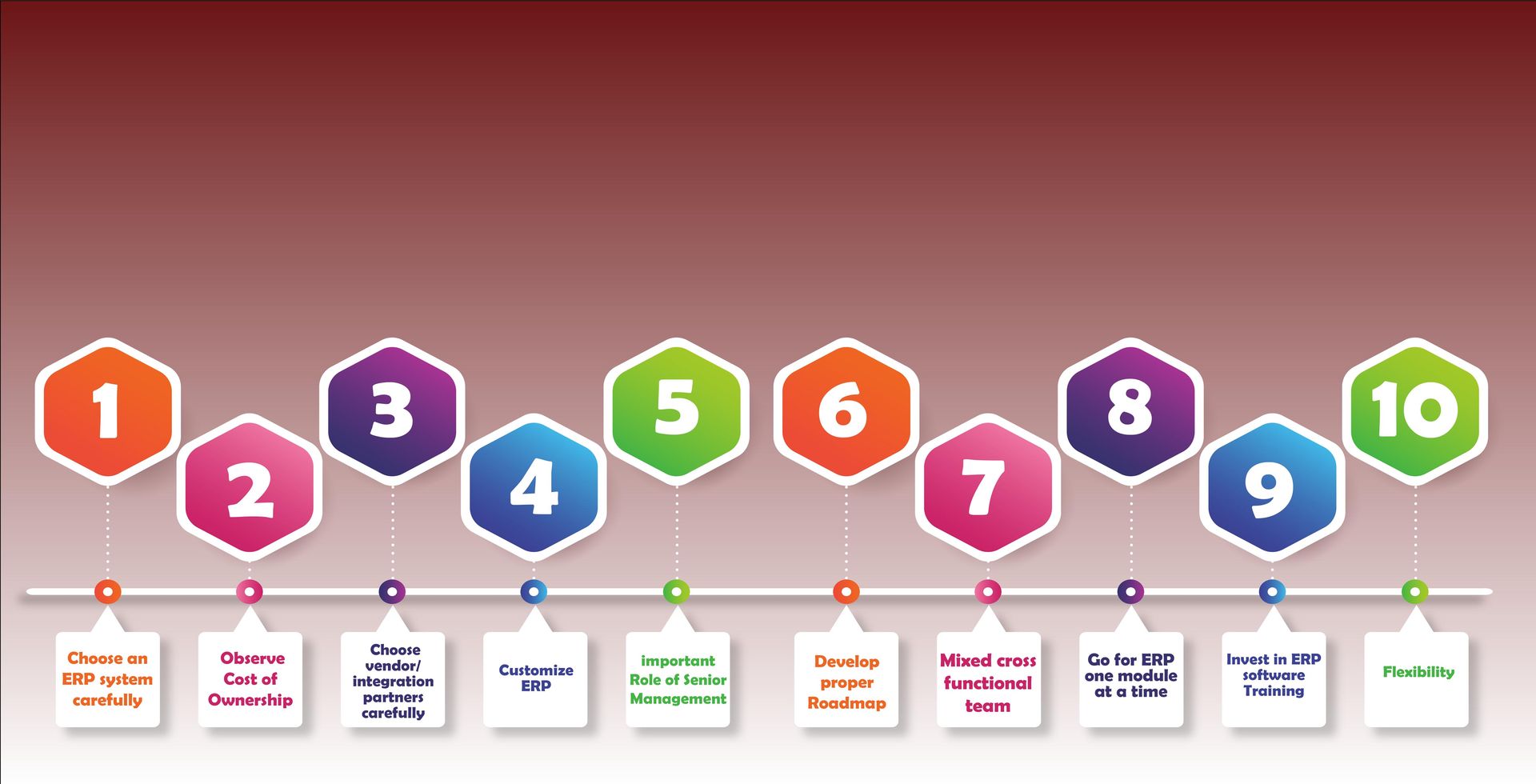Enterprise Resource Planning (ERP) systems have become essential for organizations aiming to streamline operations, enhance productivity, and drive data-driven decisions. However, implementing an ERP system is no small feat—it requires meticulous planning, collaboration, and execution to ensure success.
At Epicforce Tech, we believe in sharing actionable strategies to help businesses make the most of their ERP implementations. This blog outlines 10 tips to ensure a seamless and effective ERP rollout, enabling your organization to reap the long-term benefits of this transformative technology.
1. Establish Clear Goals and Objectives
Before diving into an ERP implementation, define what you hope to achieve.
- Identify specific challenges the ERP system should solve, such as reducing manual data entry or improving supply chain efficiency.
- Set measurable outcomes, like a 20% reduction in process time or improved inventory accuracy.
- Align your goals with stakeholders across departments to create a unified vision.
Having clear objectives ensures your team stays focused throughout the implementation process.
2. Choose the Right ERP System for Your Needs
Not all ERP systems are created equal. Selecting the right solution tailored to your industry and business processes is crucial.
Tips for Choosing an ERP System:
- Evaluate ERP solutions for scalability, integration capabilities, and ease of use.
- Select a system that aligns with your long-term business goals.
- Test the software with your workflows to ensure compatibility.
Epicforce Tech specializes in Epicor ERP consulting, helping businesses choose the right solution to meet their needs.
3. Assemble a Skilled Implementation Team
Your implementation team is the backbone of your ERP project. It should include a mix of technical experts, business process owners, and project managers.
Key Roles to Include:
- A dedicated project manager to oversee timelines and tasks.
- Representatives from each department to ensure system alignment.
- IT professionals to handle technical configurations and integrations.
Having the right people in place fosters collaboration and accountability.
4. Map and Optimize Business Processes
Before implementing an ERP system, take time to map out and optimize your current workflows.
Steps to Map and Improve Processes:
- Identify pain points in existing workflows.
- Standardize processes to reduce inefficiencies.
- Align workflows with the features of your ERP system to maximize its potential.
An optimized process foundation ensures your ERP implementation delivers tangible improvements.
5. Prioritize Data Cleansing and Migration
Data is the heart of any ERP system. Ensuring that your data is clean, accurate, and well-organized is critical for a smooth transition.
Tips for Data Migration:
- Remove duplicates and outdated records.
- Standardize formats for consistency across systems.
- Test data migration in a controlled environment to identify potential errors.
Accurate data ensures reliable reporting and smoother operations post-implementation.
6. Set a Realistic Timeline
Rushing through an ERP implementation can lead to errors, while prolonged timelines can cause project fatigue. Striking the right balance is key.
How to Create a Realistic Timeline:
- Break the project into manageable phases (e.g., planning, testing, go-live).
- Set achievable deadlines for each phase.
- Factor in time for training and testing.
A clear timeline keeps the project on track and ensures accountability.
7. Invest in Comprehensive Employee Training
An ERP system is only as effective as the people using it. Training your employees thoroughly ensures they understand the system and feel confident using it.
Training Recommendations:
- Provide hands-on training tailored to specific roles.
- Use a mix of formats, including live sessions, tutorials, and guides.
- Offer ongoing support to address questions and challenges post-implementation.
At Epicforce Tech, we offer Epicor Kinetic training designed to equip your team with the skills they need to succeed.
8. Test Extensively Before Launching
Testing is a critical phase in ERP implementation. It allows you to identify and resolve issues before the system goes live.
Testing Best Practices:
- Perform end-to-end testing of all workflows and integrations.
- Involve end-users in testing to ensure the system meets their needs.
- Document and address issues to avoid disruptions during the go-live phase.
Extensive testing minimizes the risk of errors and ensures a smooth transition.
9. Communicate and Manage Change Effectively
Implementing an ERP system often involves significant changes to how teams operate. Managing this change effectively is crucial for adoption.
Tips for Change Management:
- Keep employees informed about the benefits of the ERP system.
- Address concerns and provide clear answers to questions.
- Highlight how the new system will make their jobs easier and more efficient.
Open communication fosters trust and reduces resistance to change.
10. Plan for Ongoing Support and Optimization
ERP implementation is not a one-time event—it’s an ongoing process. Post-implementation support is essential to address challenges, optimize performance, and adapt the system to evolving needs.
How to Ensure Continued Success:
- Monitor performance metrics to assess the system’s impact.
- Collect feedback from users to identify areas for improvement.
- Schedule regular updates and upgrades to keep the system current.
Partnering with experts like Epicforce Tech ensures your ERP system continues to deliver value over time.
Conclusion: Empower Your ERP Implementation with Expert Insights
ERP implementation can transform your organization, but it requires careful planning, collaboration, and execution to succeed. By following these 10 tips, you can ensure your ERP implementation is a smooth and rewarding process.
At Epicforce Tech, we’re committed to helping businesses navigate the complexities of ERP systems with confidence. Whether you need help with Epicor customization, ERP upgrades, or Kinetic training, our team is here to provide expert guidance and support.
Remember, the key to a successful ERP implementation lies in empowering your people, refining your processes, and embracing continuous improvement. With the right approach, your ERP system can become a cornerstone of your organization’s success.
Let’s work together to make your ERP journey a success!


